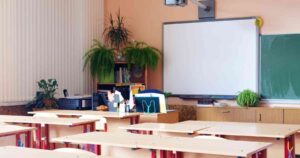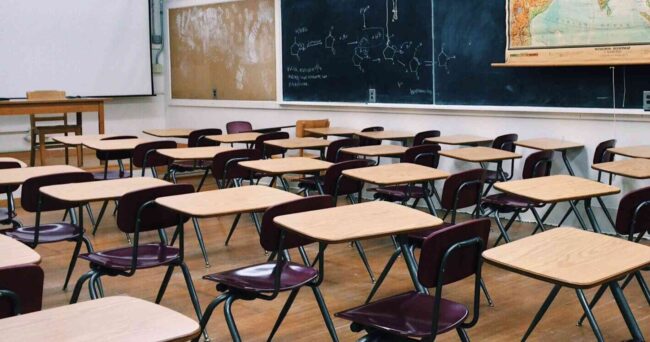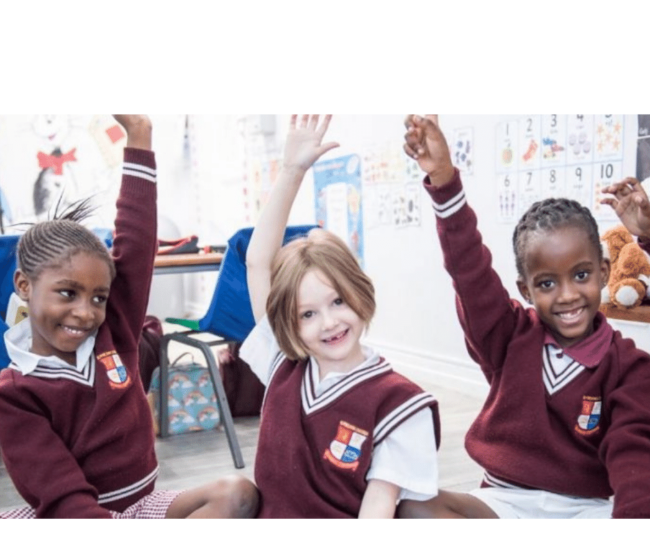It is no secret that smaller class sizes have a plethora of benefits.
From improved test scores and grades to increased graduation rates and college enrollment, the advantages of smaller classes are well-documented.
But how exactly does having fewer students in a classroom improve learning?
In this blog post, we will explore some of the ways that smaller class sizes enhance education for both students and teachers alike.
What are the benefits of smaller class sizes?
Better learning results
Having a smaller class size can benefit students’ learning results by allowing them to learn more quickly and progress through the material more effectively. This enhances their overall learning experience as it allows them to feel confident in their ability to learn, as well as improve their communication skills. Students must be engaged in both academic and social activities for these benefits to take effect, however; if the delivery format does not facilitate this engagement, then it could have a negative impact on quality.
Enhanced learning opportunities
Smaller class sizes offer a variety of benefits to students. These include the opportunity for increased collaboration and communication among students, greater access to the teacher, and more personalized instruction from the teacher. Smaller classes are also conducive to developing stronger relationships between teachers and students, as well as providing an environment where creativity can be encouraged.
Additionally, smaller classes can lead to improved achievement through more deliberate practice of subject matter, enhanced motivation due to closer student-teacher relationships, and reduced stress levels since there are fewer competition pressures in smaller groups. Furthermore, when there is a higher student-teacher ratio in larger classes,, it can be difficult for teachers to fully attend to each student’s needs adequately; however, this issue is ameliorated with smaller class sizes. Ultimately small class sizes provide many benefits that help enhance learning and education for all involved.
Cohesive class culture
The significance of a cohesive class culture in smaller class sizes is evident in the positive impact it has on learning and education. A cohesive class culture enables students to build relationships with their peers, fostering stronger communication and collaboration between them. Furthermore, it helps create a more nurturing environment for learning where teachers can provide individualized attention to each student and address their specific needs more efficiently.
Additionally, small classes are beneficial to both student-teacher interactions as well as peer-to-peer interactions since there is less competition for the teacher’s attention or for recognition among peers. Ultimately, smaller classes lead to greater engagement from students due to the improved relationships they have with their classmates and instructors alike.
Increased student engagement
Increased student engagement is significant because it leads to better performance. When students feel a personal connection with their teacher, they are more motivated to participate in class and work quickly and efficiently, allowing classes to cover more material. Additionally, students who are involved in the learning process tend to have a better understanding of the subject matter and retain knowledge longer.
What is the impact of small class sizes on student learning and engagement?
The Benefits of Smaller Class Sizes: Student engagement
Smaller class sizes can have a positive effect on student engagement and learning. The reduced size enables teachers to spend more time with each student, providing more accurate feedback and assessment. Additionally, students are able to build relationships with their classmates, which encourages collaboration and social skills. The supportive environment created by smaller classes also helps students feel comfortable interacting with each other and encourages them to engage in discussions, thereby deepening their understanding of the material being taught.
The Benefits of Smaller Class Sizes: Student achievement
Smaller class sizes have been shown to improve student achievement through better assessment, increased opportunities for learning from peers, and increased motivation. Further benefits include providing a better understanding of the curriculum and allowing students more time with teachers which encourages engagement.
Additionally, encouraging students to read for at least 15 minutes per night can help foster improved education outcomes. By promoting smaller class sizes within schools, it is possible to substantially benefit both students and the wider community.
The Benefits of Smaller Class Sizes: Student involvement
The benefits of smaller class sizes on student involvement are numerous. By reducing the number of students in a classroom, teachers are able to devote more time and attention to each individual student, leading to a higher level of motivation and involvement from them. This increased engagement allows for better learning experiences since teachers can give more thorough assessments with less time spent on marking. Additionally, better relationships between students and teachers can be formed due to the closer interaction that small classes provide.
The Benefits of Smaller Class Sizes: Student behavior
Small class sizes have been shown to have a positive effect on student behavior, reducing stress and providing more focused learning. With fewer students in the classroom, teachers are able to give each student more individualized attention and instruction. Smaller classes also allow for better communication between teacher and student which can lead to improved academic performance.
In addition, smaller classrooms are quieter than those with more than 30 students which can help those with attention issues stay focused during class. Schools that specialize in small class sizes such as Method Schools offer these benefits for their students, making it easier for them to work towards better academic outcomes.
The Benefits of Smaller Class Sizes: Student attention
Smaller class sizes offer a range of benefits to students and teachers alike. These include increased student attention, better assessment of learning, more individualized instruction, and fewer disruptions. Additionally, smaller class sizes allow for better relationships between classmates which can have academic benefits in addition to improving student retention rates and the quality of instruction.
The Benefits of Smaller Class Sizes: Student-teacher relationships
Smaller class sizes create an environment where there is a greater sense of intimacy between the teacher and the students. With fewer students in each class, teachers are able to get to know their students better by having more individualized interactions. In addition, smaller classes give the teacher more opportunities to provide personalized instruction and feedback on student work. This encourages closer relationships between teachers and their pupils, leading to a heightened level of trust, collaboration, and mutual respect.
The Benefits of Smaller Class Sizes: Classroom processes
Small class sizes positively impact student learning and engagement in numerous ways. With smaller classes, teachers are able to devote more time to individual students, meaning that each student receives more attention from the teacher. Additionally, smaller classes create an environment of collaboration among peers where all students benefit from working with each other. Furthermore, teachers can assess student work more thoroughly in smaller classes due to better marking and assessment opportunities. All of these factors lead to a higher level of motivation and engagement for students, leading them to learn better as a result.
How do smaller classes lead to better academic achievement?
Smaller class sizes have been found to lead to improved academic achievement for students. With fewer students in the classroom, the teacher is able to provide more detailed feedback and assessment of individual student performance. Smaller classes also create a more cohesive environment that encourages collaboration among peers and allows for greater opportunities for learning. Additionally, smaller class sizes allow students to gain confidence in their abilities and develop better communication skills which are key components of academic success.
FAQs
How would smaller class sizes benefit students?
Smaller class sizes would allow students to have a more personalized learning experience. With smaller classroom sizes, teachers have more time to devote to each student’s work and assessments, allowing for a deeper understanding of the material. In addition, smaller classes encourage students to participate more in class activities and get to know their classmates better. Overall, the benefits of having smaller class sizes are numerous and improve the quality of education for all students involved.
What are some possible solutions to the problem of large class sizes?
Possible solutions to the problem of large class sizes include using Student Response Systems to increase student-teacher interactions and facilitate better learning outcomes, as well as strategies to improve student satisfaction. Additionally, providing additional resources such as teaching assistants can also help reduce the workload for instructors and create an environment where students can more easily engage in critical thinking. Finally, reducing class size could be beneficial by allowing teachers to spend more time engaging with students on a personal level and creating a more meaningful learning experience overall.
Class size and effects on student learning and experience
Research has shown that there is a negative correlation between class size and student engagement, learning outcomes, and satisfaction. Students in small classes are more likely to be attentive and engaged, while those in large classes often struggle to remain focused. Additionally, teacher interaction is key for student success; however large classes can make it difficult for instructors to interact with each student in meaningful ways. Therefore, class size should be taken into account when assessing students’ learning and experience.
Smaller class sizes improve learning and education
Too often, classes are filled with students who aren’t engaged in the learning process. By reducing class size, you can create a more conducive environment for learning. This guide will discuss the benefits of smaller class sizes and provide tips on how to achieve them. By taking these simple steps, you can help your students learn at their best and reach their full potential.
Why are small classes better than big classes
The research is clear: small class sizes benefit students in a number of ways. First, small class sizes allow for more individualized attention. Teachers can get to know their students better and identify areas where they need extra help. Second, small class sizes provide a more supportive learning environment. Students feel more comfortable asking questions and participating in class. Finally, small class sizes allow for more hands-on learning experiences. Students have more opportunities to work with materials and get one-on-one help from their teachers.












